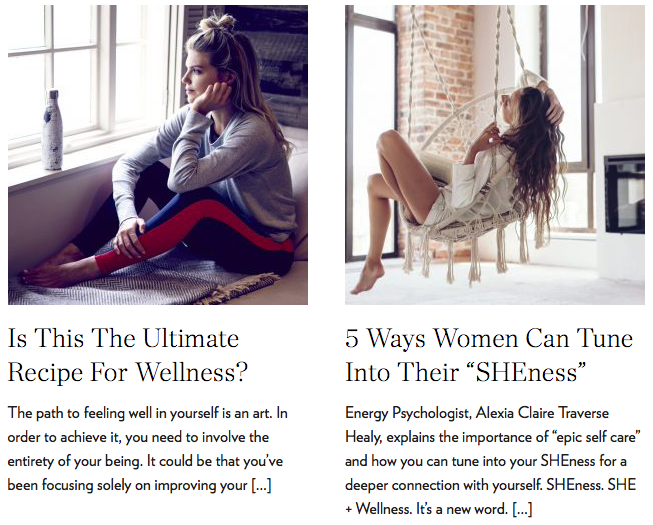The importance of mental health has definitely been a subject more talked about over the last year or so, largely thanks to the great work by the Duke & Duchess of Cambridge and Prince Harry with their “Heads Together” campaign.
Many of us find it difficult to switch off from work, our digital devices or even the television, often feeling guilty for taking this time out. But our mental health is as important as our physical health, so we should pay as much attention to it as we would physical ailments. Here are 15 daily habits from UNUM that you can take up to improve your mental health.
Use a Diary to Track Your Day
At the end of every day write down 3 things you were grateful for and 3 things you accomplished. If keeping a diary isn’t your style, then there are plenty of apps available to use for this.
Set Goals
Write down a set of goals you’d like to achieve, whether short or long-term, and work towards them. Making small goals such as trying out a new recipe or trying an exercise class can help you to feel more positive about yourself.
Plan Ahead
Get your outfit or lunch ready for work the night before. This will give you a sense of control ahead of time and will leave you with one less thing to think about in the morning.
Meditate
Meditation can be hard to master, but once you’ve got the hang of it, it can be great for the brain and stress relief. It is suggested that meditating for 10 – 12 minutes a day can be beneficial for those suffering from depression.
Get a Good Night’s Sleep
While it can be tempting to stay up binge-watching the latest box set, getting to bed at a reasonable time can increase the chances of deep, REM sleep, which happens at the end of a sleep cycle.
Don’t Be Afraid to Say ‘No’
We can’t be everything to everyone, so don’t try to be. Being available 24/7 can be stressful and detrimental to your health. Learn how to say ‘no’, whether to your boss or friends, and take some time out for yourself.
Disconnect
Most of us are constantly connected to our devices, meaning we’re able to read work emails at any point. Try to spend some time without your phone so you’re able to connect more fully with your surroundings and spend time talking to people face-to-face.
Take a Break
When situations become overwhelming it can be best to just take a break from it. Take a few minutes to perform a breathing exercise, or to get away from your desk if you’re at work. Basically, stop doing the thing, even momentarily, that is making you stressed.
Talk About It
Talking about your feelings with someone you trust can help your mental wellbeing and allow you to get what’s bothering you off your chest. Talking about how you’re feeling can be the first step to taking control of a situation.
Catch Up
We all need social interaction and talking to friends or loved ones, either in person or over the phone, can give us a boost in mood and confidence. It can also help to challenge feelings of loneliness.
Drink Alcohol in Moderation
After a hard day, many of us look forward to relaxing with a glass of wine, however we should be mindful of using alcohol to change our moods. Occasional light drinking is fine for most people, just remember to stay within the recommended daily alcohol limits (3 to 4 units for men and 2 to 3 units for women).
Eat Well
Protein contains amino acids, which make up the chemicals your brain needs to regulate your thoughts and feelings, so it’s important to make sure you’re eating plenty of protein-rich foods such as fish, eggs, nuts and seeds.
Get Some Exercise
Physical activity can have a positive impact on our mood. Even as little as a brisk 10-minute walk can increase our positive mood.
Head Outside
Weather permitting, try to spend some time outside every day. Sunlight helps promote the production of vitamin D which increases your level of serotonin (which helps regulate your mood) in the brain. Plus, time in nature is a proven stress reducer.
Embrace a New Hobby
Whether it’s a physical activity, crafts or volunteering, a hobby can provide an alternative outlet. It can also be a good way to meet like-minded individuals outside your existing support group.
More articles we think you’ll love…















